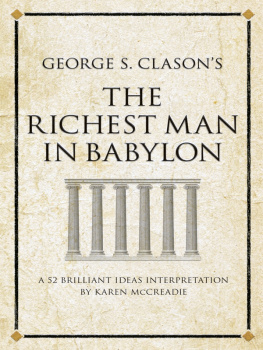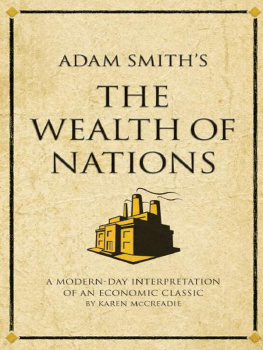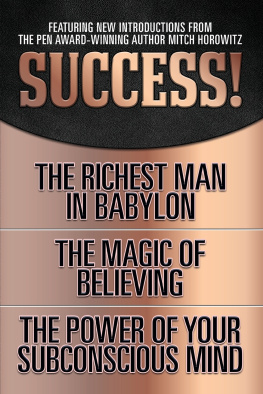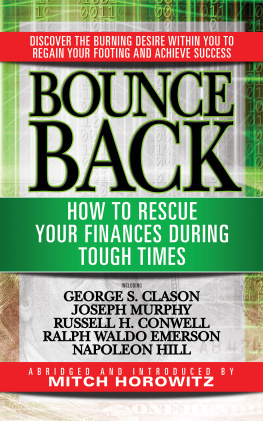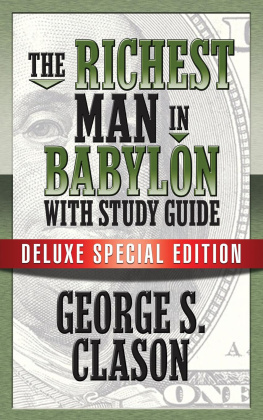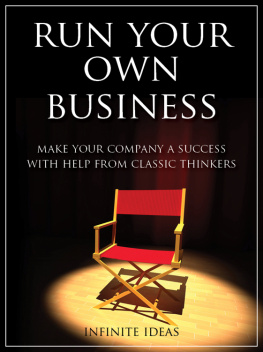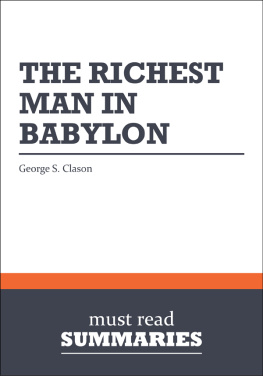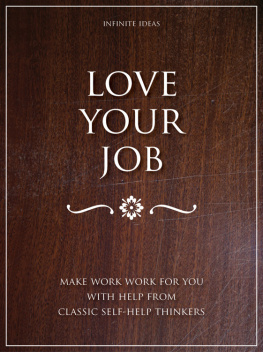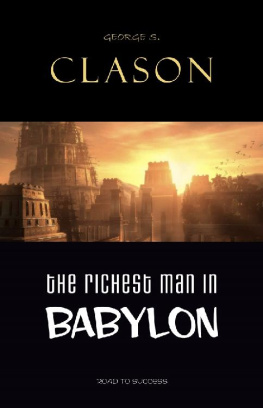


Copyright Infinite Ideas Limited, 2009
The right of Karen McCreadie to be identified as the author of this book has been asserted in accordance with the Copyright, Designs and Patents Act 1988.
First published in 2009 by
Infinite Ideas Limited
36 St Giles
Oxford
OX1 3LD
United Kingdom
www.infideas.com
All rights reserved. Except for the quotation of small passages for the purposes of criticism or review, no part of this publication may be reproduced, stored in a retrieval system or transmitted in any form or by any means, electronic, mechanical, photocopying, recording, scanning or otherwise, except under the terms of the Copyright, Designs and Patents Act 1988 or under the terms of a licence issued by the Copyright Licensing Agency Ltd, 90 Tottenham Court Road, London W1T 4LP, UK, without the permission in writing of the publisher. Requests to the publisher should be addressed to the Permissions Department, Infinite Ideas Limited, 36 St Giles, Oxford, OX1 3LD, UK, or faxed to +44 (0)1865 514777.
A CIP catalogue record for this book is available from the British Library
ISBN 978-1-905940-97-4
Brand and product names are trademarks or registered trademarks of their respective owners.
Designed and typeset by Cylinder
Printed in India
BRILLIANT IDEAS

In 1926 George S. Clason issued the first of a famous series of pamphlets on thrift and financial success, using parables set in ancient Babylon to make his point. These were distributed to millions and were eventually published together as The Richest Man in Babylon. Since then millions of copies have been sold and the book has become a modern inspirational classic.
I think its only fair to warn you that you probably wouldnt like the secrets to wealth he unveils. By all accounts, The Richest Man in Babylon is the antithesis of modern society. If quick-fix, magic-bullet philosophies are more your style (even though you know in your heart they dont work) then youll probably be disappointed. If work is a four-letter word and you think delayed gratification is a sexual dysfunction then it might not float your boat.
The Richest Man in Babylon doesnt offer overnight solutions but the methods put forward for paying off debt, generating income and building wealth are as valid and applicable today as they were over 8000 years ago in Babylon. And those guys knew a thing or two about money.
In the pages of history there is no city more glamorous than Babylon. Its name conjures up visions of wealth and splendour and yet it was located beside the Euphrates River in a flat, arid valley. There were no forests, no minesnot even stone for buildingbut despite those challenges Babylon rose up from the desert as an outstanding example of mans ability to accomplish great achievements regardless of circumstance.
In some ways Babylon was like a modern day Dubai. The geographical locations for both centres of wealth were not great, and yet their ingenuity (and preposterous financial resources) made the impossible possiblealthough building a map of the world in the ocean by creating land and shaping it so the super-rich can buy their own country is a bit more ostentatious, and certainly a lot less practical, than the Babylonians achievements.
Archaeological expeditions funded by European and American museums have discovered that the Babylonians were an educated and enlightened people. So far as written history goes, they were the first engineers, astronomers, mathematicians, financiers and the first people to have a written language. The excavation of Babylon unearthed entire libraries containing hundreds of thousands of engraved clay tablets and it is this information that forms the basis of what we know about the Babylonians nowadays. Their accomplishments defy belief even today. The walls that surrounded Babylon, for example, were reported to be nearly fifty metres high (thats equivalent to a fifteen-story office building), up to eighteen kilometres long and wide enough for a six-horse chariot to patrol the top. The inner walls protecting the royal familys palace were even higher, and irrigation systems transformed the arid valley into an agricultural paradise.
Babylonians were clever financiers and traders. So far as we know, they were the original inventors of money as a means of exchange, promissory notes and written titles of property, so who better to teach us a thing or two about wealth?
This book will take 52 of the most important or interesting points from Clasons original and give them a modern twist so we can recognise the continued relevance of his advice. Whether youre in a financial pickle and find yourself up to your neck in debt, are concerned about your future because you have no savings or whether you just want to work out a system to regain some control over your money, then the wisdom contained in The Richest Man in Babylon is timeless.
In the opening chapter, The Man Who Desired Gold, Clason tells us the story of Bansir, the chariot maker. He is telling his friend Kobbi about a dream he had where he was wealthy. But, When I awoke and remembered how empty was my purse, a feeling of rebellion swept over me.
This feeling of rebellion is a potent force for transformation and often acts as a flash point or point of no return. Bansir is finally angry; hes finally realised that despite years of diligent service and hard work he still has no gold in his purse. And it is this emotion that propels him toward financial transformation.
DEFINING IDEA
To change ones life we must start immediately and do it flamboyantly. No exceptions.
~ WILIAM JAMES, PSYCHOLOGIST AND PHILOSOPHER
This is the magical moment of realisation when enough is enough. Something has to change and the only person that can change it is you. Many personal development speakers talk of this point, and one of the most famous of them is Anthony Robbins. He talks of his own flash point when he found himself broke at the age of twenty-two. He was living in a 400-square-foot bachelor apartment and washing dishes in the bathtub. Overweight and miserable he hit the wallhe was filled with the rebellion that Bansir talks ofand made a commitment to himself that he would turn things around.
And turn them around he did. Today Anthony Robbins is the head of several very successful businesses, he coaches some of the most powerful people in the world, his seminars are attended by millions and he is wealthy beyond most peoples imagination.
Everything we do, we do for a reason. Those reasons are either to achieve pleasure or avoid pain. The reason the flash point is so potent is that we will always do more to avoid pain than we will do to achieve pleasure. This is obvious when you consider our survival instinct. It is often in our darkest hour that we are forced into action because the desire to survive is extremely strong, and we are forced into fight or flight response to get out of danger and away from the pain. So if, like Bansir, youve reached your own point of no return, then get excitedchange is in the air.
Unfortunately, for many people things never get that badI always remember a friend telling me about her relationship: Its not good enough to stay but its not bad enough to leave. All too often we dont reach the rebellion of the flash point for the same reason. The situation isnt that badwe are in a no-mans land of inaction. There is no pleasure, but there isnt enough pain to motivate a change. If you want to change your financial fortunes then the quicker you hit the tipping point the better.
Next page
